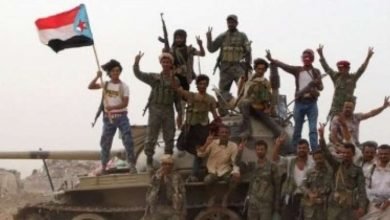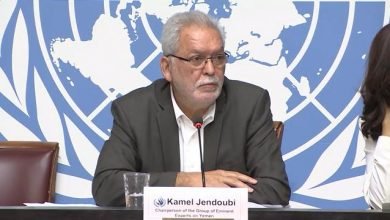Security Council Forecast in December 2022 for Yemen

SMA NEWS – NEW YORK
The International Security Council issued its Forecast Report about Yemen for December 2022, hereunder it is:
Expected Security Council Action
In December, the Security Council will hold its monthly briefing and consultations on Yemen with UN Special Envoy Hans Grundberg and a representative of OCHA.
Key Recent Developments
The Houthi rebel group continues to press its offensive in Marib governorate, where the Yemeni government retains full control of only Marib City, home to an estimated 1.5 million to three million people, and the district of Marib Al Wadi, which covers the eastern half of the governorate and contains most of its oil and gas fields and infrastructure. During November, the Houthis took control of the critical Red Sea port city of Hodeidah after government-affiliated forces, in an unexpected move, withdrew from positions in which they had been largely entrenched since the December 2018 Stockholm Agreement established a ceasefire in Hodeidah governorate.
The withdrawals in Hodeidah by the government-aligned Joint Forces, which are comprised of several armed groups backed by the United Arab Emirates, occurred on 12 November. The Joint Forces withdrew from their positions in Hodeidah city, al-Durayhimi, Bayt al Faqih, and most of the areas under their control in al-Tahita district, establishing new front lines about 75 kilometres south of Hodeidah city near Al Khukhah city. The Houthis quickly took control of the vacated areas, although there were reports of fighting.
The UN Mission to support the Hodeidah Agreement (UNMHA), established in January 2019 to monitor the ceasefire and the redeployments of Houthi and government forces from Hodeidah city envisioned in the Stockholm Agreement, said that it had not been informed in advance of the movements. The Yemeni government also said that it was unaware of the plans. A 15 November statement by UNMHA described the developments as a “major shift” of front lines that “warrant discussions between the parties of the [Hodeidah] Agreement”. UNMHA added that the mission was prepared to facilitate such discussions within the framework of the agreement. According to OCHA, using figures provided by the government and the Houthis, the withdrawals and subsequent fighting prompted the displacement of 1around 13,500 civilians.
Statements by the Joint Forces and by the Saudi Arabia-led coalition—which supports the Yemeni government—said that the redeployments were done “to become more effective and operationally flexible” in the “national battle” after maintaining defensive positions for nearly three years. From a strategic perspective, the withdrawal eliminated the vulnerable position of the Joint Forces along the narrow coastal plain and supply lines that they have maintained over the past three years while freeing up units to support anti-Houthi forces elsewhere in Yemen.
On 10 November, the Houthis breached the US embassy compound in Sana’a, which had been closed since early 2015, and arrested US-employed local Yemeni security personnel guarding the diplomatic facility. The incursion followed arrests in the preceding three weeks, according to news reports, of at least 25 Yemenis working for the US. Commenting on these detentions on 9 November, the US State Department said that the majority of those detained had been released. In an 18 November press statement, Security Council members condemned the Houthis’ seizure of the US embassy compound and called for the immediate withdrawal of all Houthi elements from the premises and the release of all those still under detention.
On 17 November, the UN announced that two of its staff in Sana’a had been arrested on 5 and 7 November, respectively, and that they remained in detention despite Houthi assurances that they would be released.
Special Envoy Grundberg continued his efforts to restart a political process. He undertook his first visit to Iran, which is the Houthis’ main ally, on 3 November. Starting on 7 November, he conducted his second visit to Yemen, meeting first with Yemeni government officials and representatives of the separatist Southern Transitional Authority (STC) in Aden. Grundberg also visited Taiz governate, the first UN Special Envoy to do so. Over three days, he went to Taiz city, Turbah and Mokha, holding meetings with the governor, political party representatives, civil society, members of parliament, business leaders and journalists. In Mokha, he met with local authorities, the Political Bureau of the National Resistance—the political wing established earlier this year by Tareq Saleh, who heads the Joint Forces’ Guardians of the Republic and is the nephew of former president Ali Abdullah Saleh—and the Al-Hirak al-Tahimi, a movement representing the Tihama people of Yemen’s western coastal region.
On 11 November, Grundberg briefed Security Council members from Aden during closed consultations. Acting Assistant Secretary-General for Humanitarian Affairs Ramesh Rajasingham also briefed, elaborating on a framework developed by the UN to address Yemen’s economic collapse, which is a major driver of Yemen’s humanitarian crisis.
Sanctions-Related Developments
On 9 November, the 2140 Yemen Sanctions Committee imposed travel ban and asset freeze sanctions on three Houthi military figures: Chief of General Staff Muhammad Abd Al-Karim Al-Ghamari, who plays a leading role in Houthi military efforts, including the offensive against Marib and cross-border attacks against Saudi Arabia; Yusuf Al-Madani, a prominent leader of Houthi forces who has been assigned to the Marib offensive since April 2021; and Assistant Defence Minister Saleh Mesfer Saleh Al Shaer, who has assisted the Houthis in acquiring smuggled arms and weapons and in the unlawful appropriation of privately owned assets and entities. The UK had proposed the designations.
Women, Peace and Security
On 18 November, the Committee on the Elimination of Discrimination against Women published the advance version of its concluding observations on Yemen (CEDAW/C/YEM/CO/7-8). While the committee welcomed the approval of Yemen’s 2020-2022 National Action Plan (NAP) on women, peace and security, it expressed concern at the lack of inclusivity, allocated budget and implementation of the NAP. The committee urged Yemen to ensure women’s inclusive participation in the implementation of the NAP, including through the allocation of sufficient resources and the development of indicators to monitor progress. It also expressed deep concern about the systematic exclusion of Yemeni women from formal peace negotiations and urged Yemen to ensure the meaningful participation of women from different backgrounds in all stages of the peace process, in reconstruction initiatives, and in transitional justice processes.
Key Issues and Options
Grundberg’s effort to restart an inclusive political process for a negotiated settlement to the conflict remains a critical issue. This challenging task is becoming more difficult because of the pace of changing military dynamics—notably, Houthi gains in their multi-front offensive in Marib governorate, the fall of which would be a major blow to the government, and in Hodeidah. In recent months, the Houthis have also consolidated control over the central al Bayda governorate and seized several districts in southern Shabwa governorate, helping them to expand their offensive in Marib. Receiving an update on developments in Hodeidah and the impact they will have on UNMHA’s role is another key issue.
Council members have made multiple calls since 2020 for an end to the Houthi escalation in Marib and for a nationwide ceasefire, most recently in a 20 October press statement. Members may encourage Grundberg, who became UN envoy in September, to continue consulting with Yemeni parties and relevant regional countries to develop a framework or road map for a political process, which the Council could then support.
Key issues related to Yemen’s humanitarian crisis include preventing famine, protecting civilians, improving humanitarian access, and supporting the economy. The UN has repeatedly warned about the potential for the Houthis’ Marib offensive to worsen the humanitarian situation if it triggers a new wave of mass displacement.
The threat posed by the FSO Safer oil tanker, which holds around 1.15 million barrels of oil and is moored in the Red Sea off the Houthi-held Ras Isa oil terminal, is an ongoing issue of concern. The Houthis have still not allowed a UN technical team to conduct an assessment of the decrepit ship, which risks causing an environmental catastrophe in the event of an oil spill or fire.
Council Dynamics
Council members support UN-led mediation efforts and share concerns about the humanitarian situation and the environmental threat posed by the Safer oil tanker. Despite this general unity among members, differences exist. For example, European members and the US tend to be more critical of the Houthis, while Russia often objects to singling out the group—a dynamic that plays out during negotiations on Council products. Last month’s sanctions designations may make reaching agreement in the Council on Yemen more complicated. Russia sought to have the 2140 Committee reverse the recent designations after it had failed to raise objections within the time frame allotted for committee members to block proposed designations. When this did not occur, it apparently indicated that the failure to do so would make Council unity on Yemen more difficult to achieve.
The UK is the penholder on Yemen. Ambassador I. Rhonda King (Saint Vincent and the Grenadines) chairs the 2140 Sanctions Committee.







